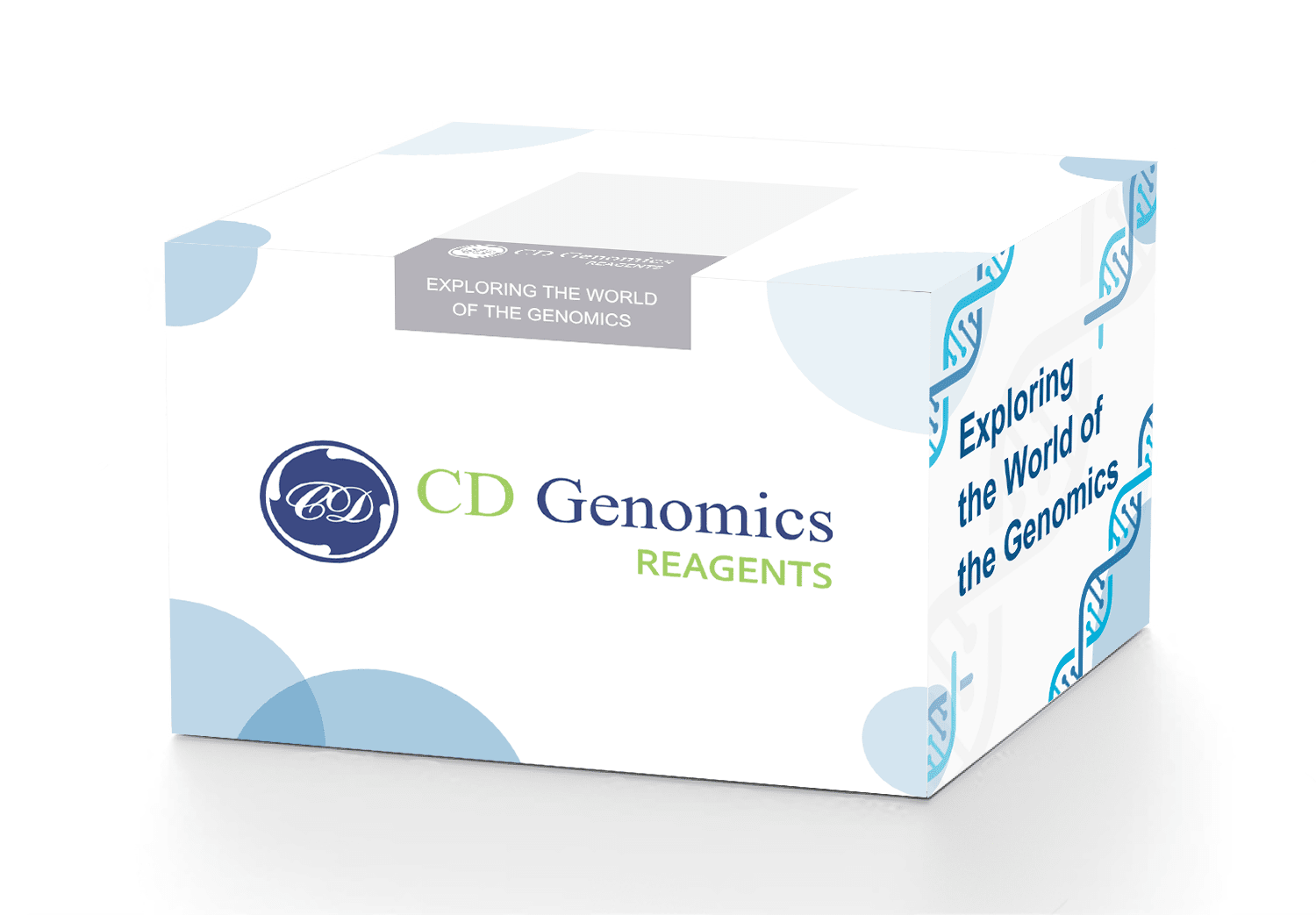The Blood microRNA Isolation Kit is intended to isolate total RNA and microRNA (20-200 nt, such as miRNA, siRNA, and snRNA) from whole blood, serum, plasma, and other liquid specimens in a fast, convenient, and cost-effective manner. Using a silica-based two-column system, the Kit can also enhance microRNA and total RNA (mRNA, tRNA, and rRNA). Purified total RNA can be utilized directly in molecular biological experiments like RT-PCR, Real-time RT-PCR, Northern Blot, total RNA sequencing, and microRNA analysis, among other things. It's important to keep the Lysis Buffer away from light and at 4°C. If not mentioned otherwise on the label, other reagents can be kept at room temperature (15-25°C) for up to 6 months.
Storage:
Lysis Buffer should be protected from light and stored at 4°C. Other reagents can be stored at room temperature (15-25°C) for up to 6 months, if not otherwise stated on the label.
Components:

Specifications:
| Features | Efficiency: efficient enrichment of total RNA and microRNA(< 200 nucleotides). Simplity and convenience: the procedure is quick and convenient, with no need for erythrocyte removel. High Performance: high-purity RNA suitable for molecular biological experiments. |
| Application | The purified RNA can be used directly for molecular biological experiments such as RT-PCR, Real-time RT-PCR, Northern Blot, total RNA sequencing, and microRNA analysis, etc. |
| Sample type | Whole blood, serum, plasma, and other liquid samples |
Protocol A: Purification of total RNA ( including microRNA)
Apply this protocol when there is not high demand of microRNA purity, e.g. microRNA RT-PCR, and microRNA Northen blot research.
- Sample preparation: a. For serum, plasma, and cerebrospinal fluid, add 3 volumes Lysis Buffer. For example, add 750 µl Lysis Buffer to every 250 µl sample. Mix by vortexing or pipetting up and down. b. For cells, every 5~10×106 cells add 750 µl Lysis buffer. Mix by vortexing or pipetting up and down. c. For whole blood, dilute with 1 volume RNase-free H2O. Then add 3 volumes Lysis Buffer. Mix by vortexing or pipetting up and down.
- Place the tube containing the lysate on the benchtop at room temperature (15-30°C) for 5 min.
- Add 200 µl chloroform every 750 µl Lysis Buffer to the tube containing the lysate and cap it securely. Shake the tube vigorously for 15 s.
- Place the tube containing the lysate on the benchtop at room temperature for 2-3 min. Centrifuge at 12,000 rpm for 10 min at 4℃. The sample separates into 3 phases: an upper, colorless, aqueous phase containing RNA; a white interphase; and a lower organic phase. The volume of aqueous phase is around 70% of Lysis Buffer added.
- Transfer the upper aqueous phase to a new collection tube (not supplied). Add 1.5 volumes of ethanol (96%-100%, ensure the ethanol is at room temperature) and mix thoroughly by pipetting up and down several times. Do not centrifuge. Continue the next step without delay.
- Pipet up to 700 µl of the sample every time, including any precipitate that may have formed, into an RNA Column Set in a collection tube (supplied). Close the lid gently and centrifuge at 12,000 rpm for 30-60 s at room temperature. Discard the flow-through.
- Add 700 µl Wash Solution 1 (Ensure that ethanol (96% -100%) has been added ) to the RNA Column Set. Close the lid gently and centrifuge for 30 s at 12,000 rpm to wash the column. Discard the flow-through.
- Add 500 µl Wash Solution 2 (Ensure that ethanol (96% -100%) has been added) to the RNA Column Set. Close the lid gently and centrifuge for 30 s at 12,000 rpm to wash the column. Discard the flow-through.
- Repeat step 8.
- Centrifuge for 2 min at 13,000 rpm to dry the spin column membrane.
- Transfer the RNA Column Set to a new 1.5 ml collection tube (not supplied), and discard the old collection tube with the flow-through. Pipet 30-50 µl RNase-free H2O directly onto the RNA Column membrane. Close the lid gently. Place the tube on the benchtop at room temperature for 1 min, and centrifuge for 1 min at 12,000 rpm to elute the RNA.
- If the expected RNA yield is >30 µg, repeat step 11 with a second volume of 30-50 µl RNase-free H2O. Elute into the same collection tube.
Protocol B: Purification of microRNA enriched fractions
Apply this protocol when there is high demand of microRNA purity, e.g. microRNA chip and microRNA clone research.
- Sample preparation and lysis (refer to steps 1-4 of Protocol A).
- Transfer the upper aqueous phase to a new collection tube (not supplied). Add equal volume of ethanol (70%, ensure the ethanol is at room temperature) and mix thoroughly by pipetting up and down several times. Do not centrifuge. Continue the next step without delay.
- Transfer the obtained liquid, include any precipitate that may have formed into an RNA Column Set in a collection tube (supplied), centrifuge at 12,000 rpm for 30-60 s at room temperature (15-25°C). If the volume exceeds 700 μl, centrifuge successive aliquots in the same column. Discard the RNA Column Set after centrifugation, and keep the flow-through.
- Add 0.65 volume of Ethanol (96-100%, ensure the ethanol is at room temperature) and mix thoroughly by pipetting up and down several times (A precipitate may form after addition of ethanol, but this will not affect the procedure).
- Transfer the obtained liquid, include any precipitate that may have formed into a microRNA Column Set, centrifuge at 12,000 rpm for 30 s at room temperature (15-25°C). If the volume exceeds 700 μl, centrifuge successive aliquots in the same column. Discard the flow-through, and keep the microRNA Column Set.
- Refer to the steps 7-11 of Protocol A to elute the microRNA.



